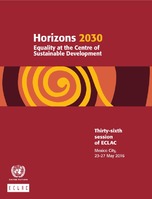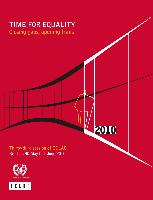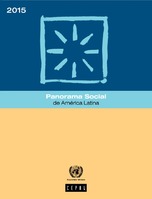- Biblioteca CEPAL
- Biblioguias
- biblioguias
- Raúl Prebisch and the challenges of development of the XXI century
- Development and inequality
Raúl Prebisch and the challenges of development of the XXI century
Development and inequality
Identifying the vision of inequality in Prebisch’s work is no easy task for a number of reasons. On the one hand, his numerous contributions to Latin American development are integrated into a sweeping vision that encompasses the functioning of the economic system as a whole. Within this comprehensive overview, the specific approach to the issue of inequality seems to take shape and requires a detailed analysis in order to pinpoint it. As Prebisch himself admitted, his thinking on development went through successive phases and shifts over time, reflecting his role as a theoretical thinker but one who was firmly anchored in the economic reality of his time.
References to inequality in studies carried out in the 1950s concern the differences in sectoral productivity levels associated with the concept of structural heterogeneity and fundamentally with inequality between countries. At this time, Prebisch responded to the general currents of thinking which were focused mainly on the problem of income distribution as a result of sectoral changes in the economy. His contribution in this regard lay in the emphasis he placed on the centre-periphery relationship and on the inequality that was generated and reproduced internationally by the different patterns of production specialization. Inequality within Latin America was implicit in the concept of duality and structural heterogeneity. During this phase, attention was also paid to functional income distribution, which was in keeping with the Keynesian-type models of economic growth identified by Harrod and Domar, who considered the need for equilibrium between the different components of demand: consumption and investment, which are associated with earnings and wages. But Prebisch’s emphasis, unlike that of Keynes, was on balance-of-payments constraints, which is why, unless they were combined with structural adjustments, Keynesian policies in favour of expanding demand in times of trade balance crises only served to deepen external disequilibria.
Interviews
Antonio Prado: La economía política de la apropiación de los aumentos de productividad (2013 - 3:08)
Juan Pablo Jiménez - Política Fiscal: heterogeneidad y desafíos comunes en la región (2013 - 5:06)
Related documents
-
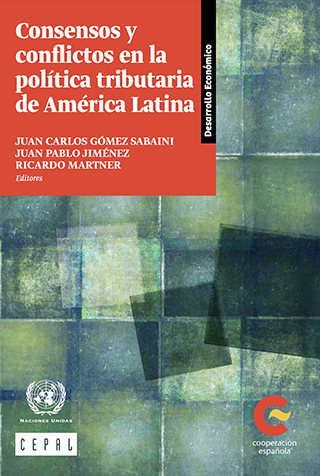 Consensos y conflictos en la política tributaria de América Latina
by
Publication Date: 2017-03
Consensos y conflictos en la política tributaria de América Latina
by
Publication Date: 2017-03 -
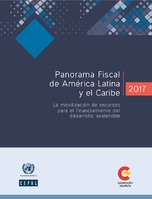 Panorama Fiscal de América Latina y el Caribe 2017: la movilización de recursos para el financiamiento del desarrollo sostenible
by
Publication Date: 2017LC/PUB.2017/6-P
Panorama Fiscal de América Latina y el Caribe 2017: la movilización de recursos para el financiamiento del desarrollo sostenible
by
Publication Date: 2017LC/PUB.2017/6-P -
-
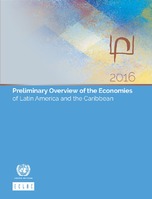 Preliminary Overview of the Economies of Latin America and the Caribbean 2016
by
ISBN: 978-92-1-058573-6Publication Date: 2016LC/G.2698-P
Preliminary Overview of the Economies of Latin America and the Caribbean 2016
by
ISBN: 978-92-1-058573-6Publication Date: 2016LC/G.2698-P -
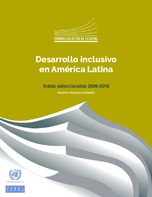 Desarrollo inclusivo en América Latina. Textos seleccionados 2009-2016
by
Publication Date: 2016-11Serie: Páginas Selectas de la CEPAL 294 p. LC/M.35
Desarrollo inclusivo en América Latina. Textos seleccionados 2009-2016
by
Publication Date: 2016-11Serie: Páginas Selectas de la CEPAL 294 p. LC/M.35 -
 El imperativo de la igualdad: por un desarrollo sostenible en América Latina y el Caribe
by
Publication Date: 2016-05
El imperativo de la igualdad: por un desarrollo sostenible en América Latina y el Caribe
by
Publication Date: 2016-05 -
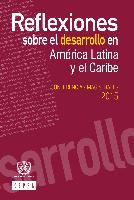 Reflexiones sobre el desarrollo en América Latina y el Caribe: conferencias magistrales 2015
by
Publication Date: 2016-03
Reflexiones sobre el desarrollo en América Latina y el Caribe: conferencias magistrales 2015
by
Publication Date: 2016-03

